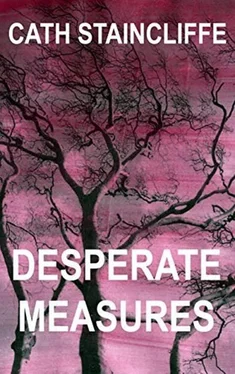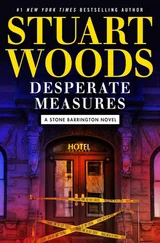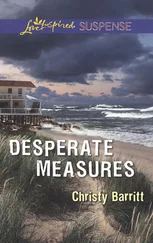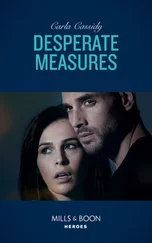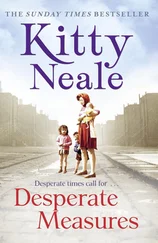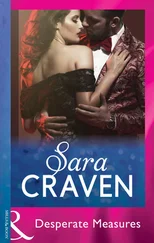‘Was there someone in it?’ Richard said.
‘A man. I couldn’t see him properly, the windows were quite dark. And I didn’t like to stare.’
‘This was Monday?’ Janine said.
‘Yes,’ Dr Gupta said, ‘at six o’clock.’
‘Did you see the car again?’ Janine said.
‘No.’
‘Did you notice the registration?’ Richard said.
‘Sorry, no.’
‘Thank you,’ Janine said. ‘Dr Gupta, we need someone to make a formal identification of the body and Mrs Halliwell has declined. Would you…?’
‘Of course,’ she said.
‘It will be sometime later today after the post-mortem,’ Janie said. ‘Thank you.’
Dawn Langan was so tearful, apparently in shock and they got next to nothing from her. In between crying, her eyes would cloud over, staring into the distance and Janine would have to repeat the question to get any reply.
‘On Monday, do you remember seeing anyone parked across the street?’ Janine said.
‘No.’
‘And did you notice anyone hanging around when you left on Tuesday?’
Dawn started to cry again. ‘I’m sorry, it’s just so awful.’
‘Something Fraser McKee failed to mention,’ Janine said as they walked to the car. ‘A screaming row.’
‘Shall we jog his memory?’ Richard said.
‘Definitely. It could be a motive but it’s messy, isn’t it? Halliwell sacks McKee in effect, McKee overreacts, some may say, and shoots Halliwell. Meanwhile, the Wilson gang are trashing McKee’s house. McKee flees and is run off the road by forces unknown, maybe Wilson Crew affiliates – in a car similar to the one Dr Gupta saw the evening before.’
‘Where’s the gun?’ Richard said.
‘And why would McKee come to see us if he’s the perpetrator?’ Janine said.
Janine’s phone rang. Shap calling. ‘Boss, I’m at the garage. There’s no match between the cars, they’ve found black paint on Halliwell’s but nothing like that on McKee’s. In fact, no sign that a second vehicle was involved in the crash at all. If he had been rammed, shunted off the road, they would expect to see scratches, paint samples and so on but there’s nothing. Nada .’
‘Interesting. Thanks Shap.’ Janine relayed the news to Richard. ‘Something else we need to speak to Fraser McKee about.’ She checked her watch. ‘I’m due at the post-mortem now – you go and sort out a duty solicitor for McKee and we’ll question him under caution as soon as I’m back.’
The ringing of the doorbell roused Norma from sleep. She was on her bed, fully clothed, a sour taste in her mouth and drool on the pillow.
Perhaps they’d leave, go away, if she just ignored it. But it went again, three short peals.
Norma wiped at her face, glimpsed herself in the mirror as she passed, face drawn, deep shadows under her eyes, hair tangled. No time to improve on her appearance.
Yvette was at the door. Had she not heard? Had the family not seen the news? The picture of Don, the headlines, FAMILY GP SHOT DEAD .
Yvette’s family were from the Congo, recent immigrants. Sometimes Norma used a French word, Yvette’s first language, to explain what she wanted from the teenager’s playing.
‘Mrs Halliday,’ the girl smiled, her face bright, eyes clear. She didn’t know. For a moment Norma considered letting her in, going ahead with a lesson anyway but swiftly realized this was foolish. She would not be able to listen to the music without getting upset. ‘Yvette, I am sorry but the lesson is cancelled,’ she said. ‘My husband, he’s… il est mort. Je suis desolee .’
The girl’s smile disappeared and she swallowed. ‘Oh, I am sorry,’ she said and she scuffed one shoe against the step. Gawky.
‘No more lessons,’ Norma said, ‘ Finis , finished.’
Yvette nodded. ‘Yes,’ she said, ‘bye-bye. Thank you, merci beaucoup .’ She walked away, down the drive.
‘ Au revoir ,’ Norma whispered. She had a sudden powerful memory of that wonderful summer in France, those weeks before she started university. Of Pierre, her first lover, her only lover apart from Don.
There was a small copse on the outskirts of the village, in a hollow below the road, where all the teenagers liked to meet. Pierre had arrived in the village over the winter, moving in with his grandmother, so Norma had not met him on previous holidays. He was the quiet type, on the edge of the group, enjoying the games and jokes, volunteering little. But his eyes were always on her and she felt the attraction too. He was sallow-skinned with brown eyes, long curling eyelashes and a crooked smile and he could play the harmonica.
The relationships in the group fluctuated. Some more serious than others, some of the local kids had a series of flings with les Anglais who visited and it was commonplace for couples to indulge in petting as the night wore on, moving away into the trees if things got more intense.
Norma kept a diary back then and each night chronicled the state of play with Pierre. On the second week, she moved away from the campfire with him, giddy from the wine but flushed with desire too. He had a rubber Johnny. She felt a lurch of embarrassment when he pulled it from his pocket and asked her to hold his lighter so he could see to put it on. But then he kissed her again and touched her and she didn’t want it to stop.
She was level-headed enough to know it was only a holiday romance and when he asked for her address, so they could write, she had smiled and said she was moving to university so she didn’t have one yet.
She never saw him again.
In the dining room, Norma got out her work diary. She made a list of current pupils and their phone numbers, seven in all not counting Yvette. Then she began to ring them. She rehearsed what she would say, a bereavement in the family, giving up teaching. In five cases she got an answerphone which made it easier. She spoke to a further three parents who sounded either shocked or embarrassed (they obviously knew about Don) and were as eager to keep things brief as she was. The other call, the last, was to Leo Johnson’s house. Leo answered and said no, neither his mum nor dad were in. What did she want? Leo had an uncomfortable habit of saying whatever came into his head. Norma decided not to go into the reasons for terminating the lessons but just said, ‘I’m not going to be doing lessons anymore, Leo, can you let your parents know?’
‘Not on Saturday?’
‘That’s right. Not on Saturday. Not ever. I’m retiring.’
‘You are quite old,’ he said.
‘I am, yes,’ she said, ‘bye-bye, Leo.’
‘Bye, Miss. Miss?’ he said quickly.
‘Yes Leo?’
‘Was that man your husband? The one what was shot?’
‘Yes,’ Norma said.
‘Who shot him?’
‘Nobody knows,’ she said, ‘the police are trying to find out.’
‘OK Miss, bye Miss.’
Norma hung up the phone. She stared at the paper beside it where she had scrawled dead, dead, dead over and over and underlined it. ‘Oh, Don,’ she whispered.
She heard the door, and his footsteps and, shivering, she stumbled to the hall.
But there was no one there.
Just her.
Alone.
‘In good health, could have lived another forty years,’ Susan, the pathologist, commented. ‘Clean liver and lungs, strong heart. Not always the way with doctors.’
Janine looked at the man on the table. He’d a strong face, large nose and high brow. His clothes had been photographed, swept and taped for trace evidence then removed and sealed to be admitted into evidence. His body had been photographed and examined before being cleaned. The three wounds to his chest were vivid, shocking against the pallor of his skin but now overshadowed by the sweeping Y-shaped incision that the pathologist had made to carry out the internal exam.
Читать дальше
